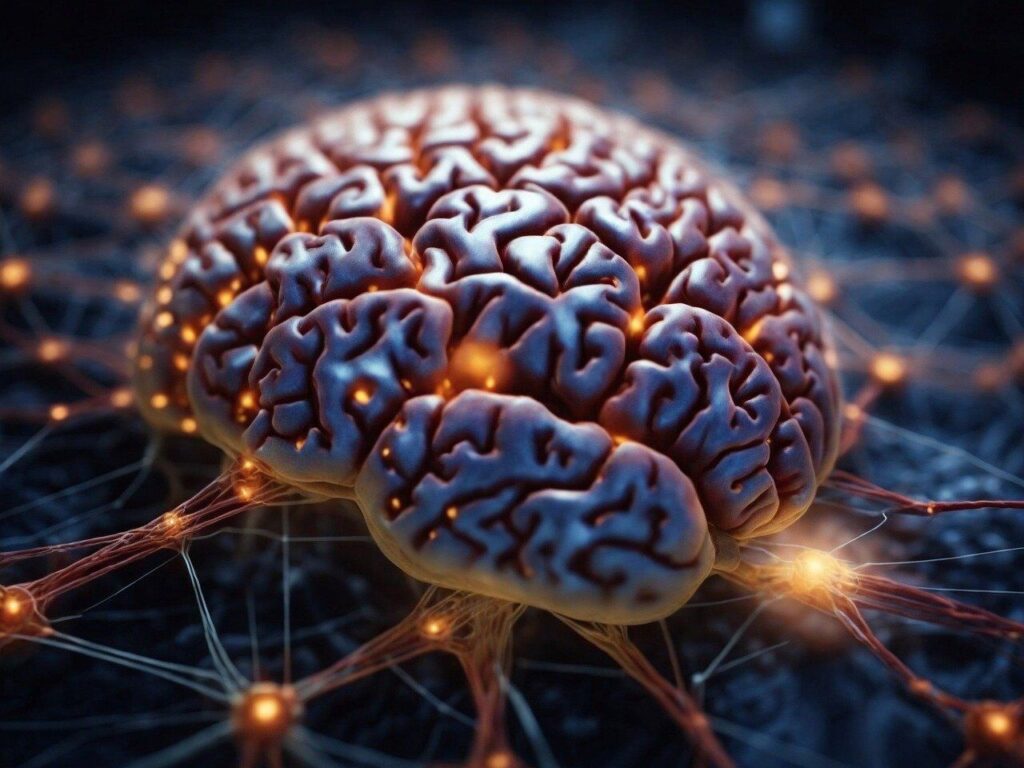The Brain’s Prefrontal Cortex and Executive Functions
The relationship between the brain and executive functions, which are primarily associated with the prefrontal cortex, is a crucial aspect of understanding how we manage complex cognitive processes, make decisions, and regulate our behavior. Here’s an explanation of this relationship:
Prefrontal Cortex Location:
The prefrontal cortex is a region at the front of the brain, situated right behind the forehead. It is the area of the brain most closely associated with executive functions.
Executive Functions Defined:
Executive functions are a set of high-level cognitive processes that allow individuals to manage and regulate their thoughts, actions, and emotions. They play a pivotal role in goal setting, planning, problem-solving, decision-making, and self-control.
Prefrontal Cortex and Executive Functions:
The prefrontal cortex is often referred to as the “executive center” of the brain because it is responsible for orchestrating and coordinating many of these executive functions. Here’s how:
Working Memory:
The prefrontal cortex is involved in working memory, which is crucial for holding and manipulating information temporarily. This function helps us keep information in mind while making decisions or solving problems.
Inhibition:
It plays a role in inhibitory control, enabling individuals to suppress impulsive behaviors or distractions and make choices based on long-term goals rather than immediate gratification.
Task Switching:
The prefrontal cortex is responsible for task switching, allowing us to shift our attention and focus between different tasks efficiently.
Planning and Organization:
It assists in planning and organizing thoughts and actions, helping us set goals and develop strategies to achieve them.
Emotional Regulation:
The prefrontal cortex is involved in emotional regulation, allowing individuals to manage and modulate their emotional responses to various situations.
Development and Maturation:
The prefrontal cortex is one of the last brain regions to mature, and its development continues well into early adulthood. This maturation process corresponds with improvements in executive functions during childhood and adolescence. As the prefrontal cortex becomes more efficient and connected with other brain regions, individuals tend to exhibit better executive control.
Impairment and Dysfunction:
Damage or dysfunction of the prefrontal cortex can lead to deficits in executive functions. Conditions such as traumatic brain injury, certain neurological disorders, or developmental issues can result in challenges with decision-making, impulsivity, emotional control, and other executive processes.
The prefrontal cortex is intricately linked to executive functions, serving as the control center for higher-order cognitive processes. Understanding this relationship is essential in appreciating how our brain manages complex tasks, regulates behavior, and adapts to various challenges in our daily lives.
A Focus on the Role of the Prefrontal Cortex
The Prefrontal Cortex as the Executive Control Center:
The prefrontal cortex, often referred to as the PFC, is a highly evolved region of the brain that sets humans apart from many other species. This region is especially large and complex in the human brain, and it plays a pivotal role in orchestrating our executive functions. Think of the PFC as the conductor of a symphony, coordinating the various cognitive processes required for goal-directed behavior and decision-making.
Working Memory and Information Manipulation:
One of the key functions of the PFC is working memory. Working memory allows us to temporarily hold and manipulate information, which is vital for many cognitive tasks. For example, when solving a complex problem, the PFC keeps relevant information “online” so that we can analyze, evaluate, and synthesize it to arrive at a solution.
Inhibition and Impulse Control:
The PFC is also crucial for inhibition, which is the ability to suppress impulses and distractions. This function helps us resist immediate temptations in favor of long-term goals. When someone refrains from eating a piece of chocolate cake while on a diet, it’s the PFC working to inhibit the impulse for immediate gratification.
Planning, Organization, and Goal Setting:
Planning and organizing our thoughts and actions are executive functions that the PFC handles adeptly. Whether it’s planning a project, creating a to-do list, or setting long-term career goals, the PFC is involved in breaking down complex tasks into manageable steps and prioritizing them.
Flexibility and Task Switching:
The PFC is responsible for cognitive flexibility, which allows us to shift our attention and adapt to changing situations. For instance, when switching from a creative brainstorming session to a detailed editing task, the PFC ensures a smooth transition between these different cognitive demands.
Emotional Regulation:
Emotional regulation is another critical function of the PFC. It enables us to manage and modulate our emotional responses to various stimuli. When faced with a challenging situation, the PFC helps us keep our emotions in check, allowing for more rational decision-making.
Development and Plasticity:
The PFC is unique in that it undergoes a protracted period of development, continuing well into early adulthood. This developmental trajectory corresponds with the gradual improvement of executive functions during childhood and adolescence. As the PFC matures, it becomes more efficient and better connected with other brain regions, resulting in enhanced executive control.
Impairment and Dysfunction:
Damage or dysfunction of the PFC can lead to deficits in executive functions. Traumatic brain injuries, certain neurological disorders, and developmental issues can all result in challenges with decision-making, impulsivity, emotional control, and other executive processes.
In conclusion, the prefrontal cortex is the brain’s executive control center, overseeing a wide array of high-level cognitive functions that are essential for adaptive and goal-oriented behavior. Understanding the intricate relationship between the PFC and executive functions sheds light on how our brains manage complex tasks, make decisions, and regulate behavior, ultimately shaping our ability to navigate the challenges of daily life. How coaching can help manage executive function deficits in ADHD disorder.

